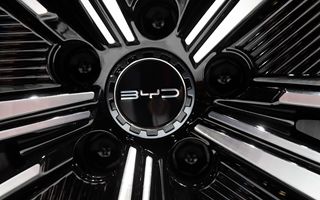(Finance) – It’s iIt is likely that the tariffs imposed by the European Commission on electric vehicles (EVs) imported from China materially impact the competitive landscape in Europe in the short term, given the slowdown in the diffusion of electric vehicles. Fitch Ratings states this in a report on the topic. However, if China reacted, especially with broader measures covering other types of vehicles or even other industrial sectors, German automakers would be the hardest hit.
The impact of any broader measures would weigh on German automakers’ margins and cash flow generation. However, Fitch expects existing headroom to help absorb these pressures without ratings being affected.
The Chinese vehicle imports into Europeincluding those produced in China by Volvo, Polestar and Dacia (group Renault), they represented less than 4% of sales of electric vehicles in 2023. Tesla was responsible for over a third of this, followed by SAIC (mainly with its MG brand) and BYD. SAIC and BYD will likely be subject to additional tariffs of 38.1% and 17.4%, respectively.
“We do not expect the imposition of EU tariffs on electric vehicles to change our previous view that the market share of Chinese electric vehicle brands in Europe will remain less than 5% in the coming years“, the report reads.
Exports to China account for an average of 10% of German automakers’ unit sales, mostly of high-margin luxury models. While buyers in these segments tend to be less price sensitive and additional tariffs can be passed on to customers, any additional tariffs on European vehicles imported into China will likely be absorbed by automakers. That’s because a price war in China is already hitting the luxury segment, with the rise of Xiaomi’s SU7 competing directly with Porsche. “Any additional tariffs, if absorbed internally, would result some margin erosion“, is underlined.
In anticipation of possible tariffs, i Chinese brands have increased investment in Europe to localize production: BYD is building a manufacturing plant in Hungary, Chery has signed a joint venture agreement in Spain, while other Chinese automakers are exploring opportunities in Turkey and Italy. “They will lose some cost advantage due to higher labor, energy and manufacturing expenses in Europe, but these sales will still be more profitable than those in the Chinese domestic market,” Fitch says.
